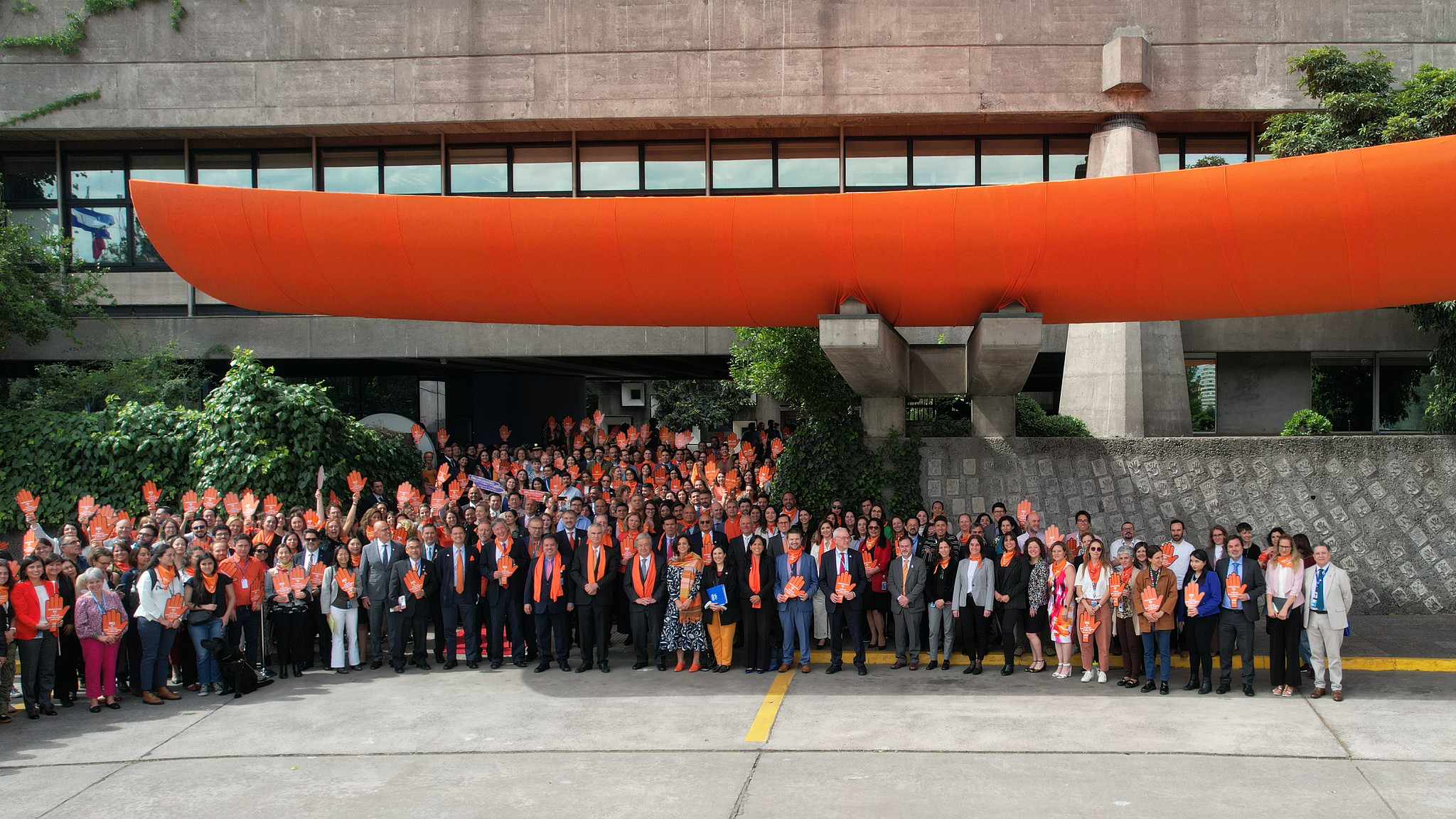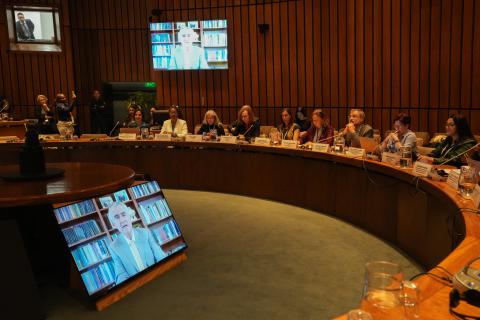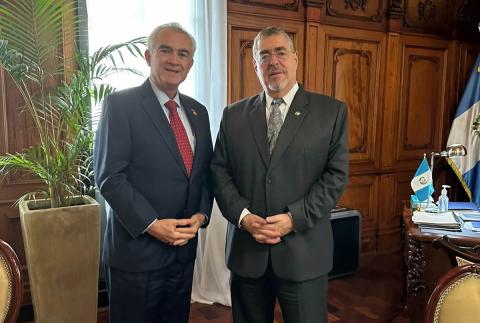News
Wearing an orange scarf, the United Nations Secretary-General António Guterres took a photo with ECLAC staff, to support the annual UN campaign “UNITE to End Violence against Women”. The orange colour representing a brighter future without gender based violence has become a symbol of the annual UN campaign which runs from the International Day for the Elimination of Violence against Women 25 November until Human Rights Day 10 December every year.
Gender-based violence against women and girls takes place systematically and persistently in the region: it knows no borders, it affects millions of women and girls of all ages and occurs in all spaces, from the domestic to the public sphere. It is what the Secretary General of the United Nations António Guterres has called a “shadow pandemic.”
Stronger investments are key to ending gender-based violence and femicide
The theme of this year’s campaign is “invest to prevent violence against women and girls”, highlighting how robust responses, including investment in prevention, are paramount to ending violence against women and girls.
The recent CEPAL report on Femicidal violence in figures Latin America and the Caribbean highlights the importance of good data and sufficient financing for the implementation of policies that guarantee the rights of all women and girls in Latin America and the Caribbean. In 2022, at least 4,050 women were victims of femicide (its name varies according to national legislation) in 26 countries and territories of Latin America and the Caribbean, according to the latest data that official agencies reported to the Gender Equality Observatory for Latin America and the Caribbean.
Regional commitments to boost gender equality
Latin America and the Caribbean is the only region in the world where, for more than forty-five years and without interruption, States have been meeting at the Regional Conference on Women in Latin America and the Caribbean to discuss and commit to eradicating gender inequality and moving towards guaranteeing the full exercise of the autonomy and human rights of women and girls in all their diversity. This commitment has been translated into a Regional Gender Agenda, one of the central pillars of which is the prevention and elimination of all forms of violence against women and girls.
At the Regional Conference’s 2022 session countries adopted the Buenos Aires Commitment. This document outlines a path towards creating a care society with gender equality and sustainability at the core. One recommendation from the commitment is to promote progressive fiscal policies, allocate budgets with a gender focus and implement financing mechanisms to guarantee sufficient sustainable resources for all levels and areas of public policy. The aim is to reverse gender inequalities and guarantee the rights of women, adolescents and girls.
The Montevideo Strategy for Implementation of the Regional Gender Agenda within the Sustainable Development Framework by 2030 was adopted by the Regional Conference on Women in Latin America and the Caribbean In 2017. The regional political commitment to achieve gender equality highlights the importance of national and international public funding sources guarantee the fulfilment of women’s rights and gender equality and outlines ten recommendations to secure sustainable financing.
Explore more recent ECLAC resources under the theme gender equality in our Digital Repository and follow the Division of Gender Affairs and the Library’s campaign on twitter/X.



